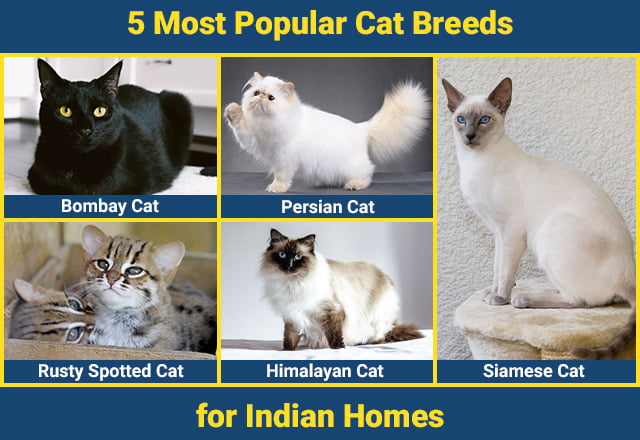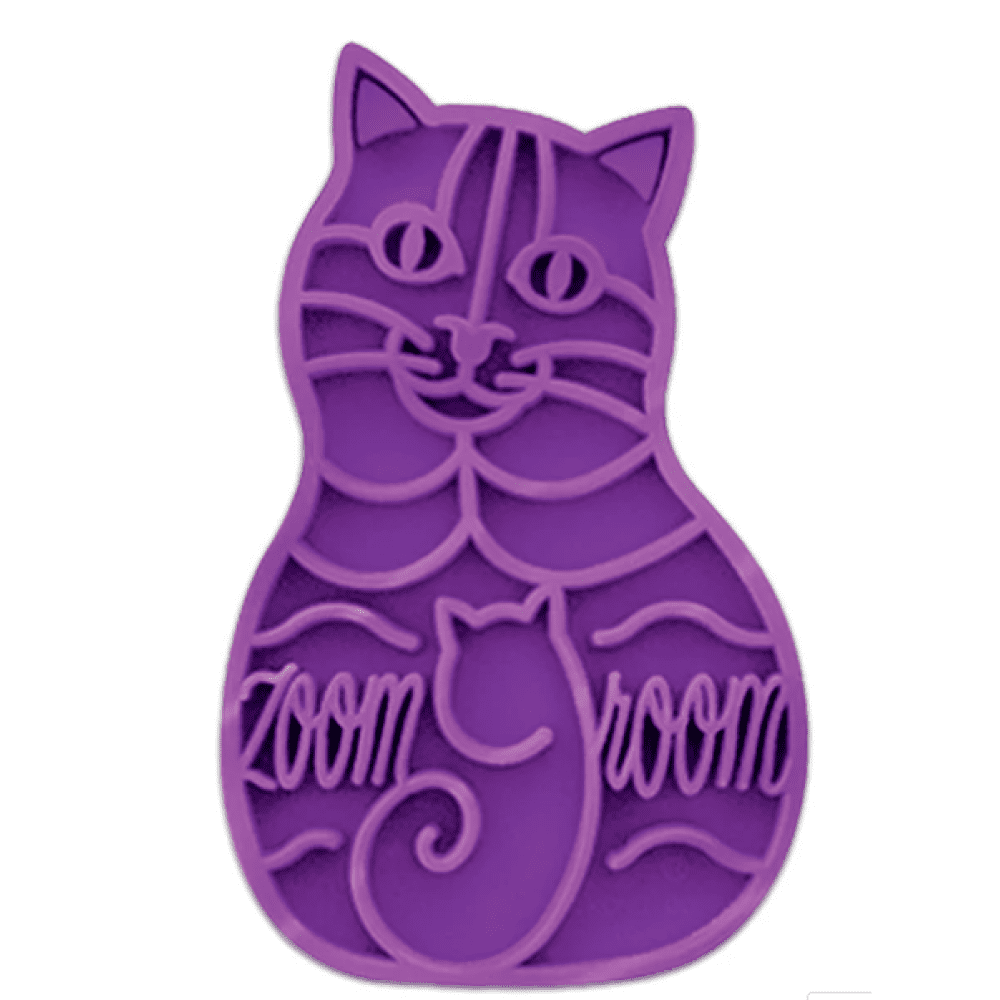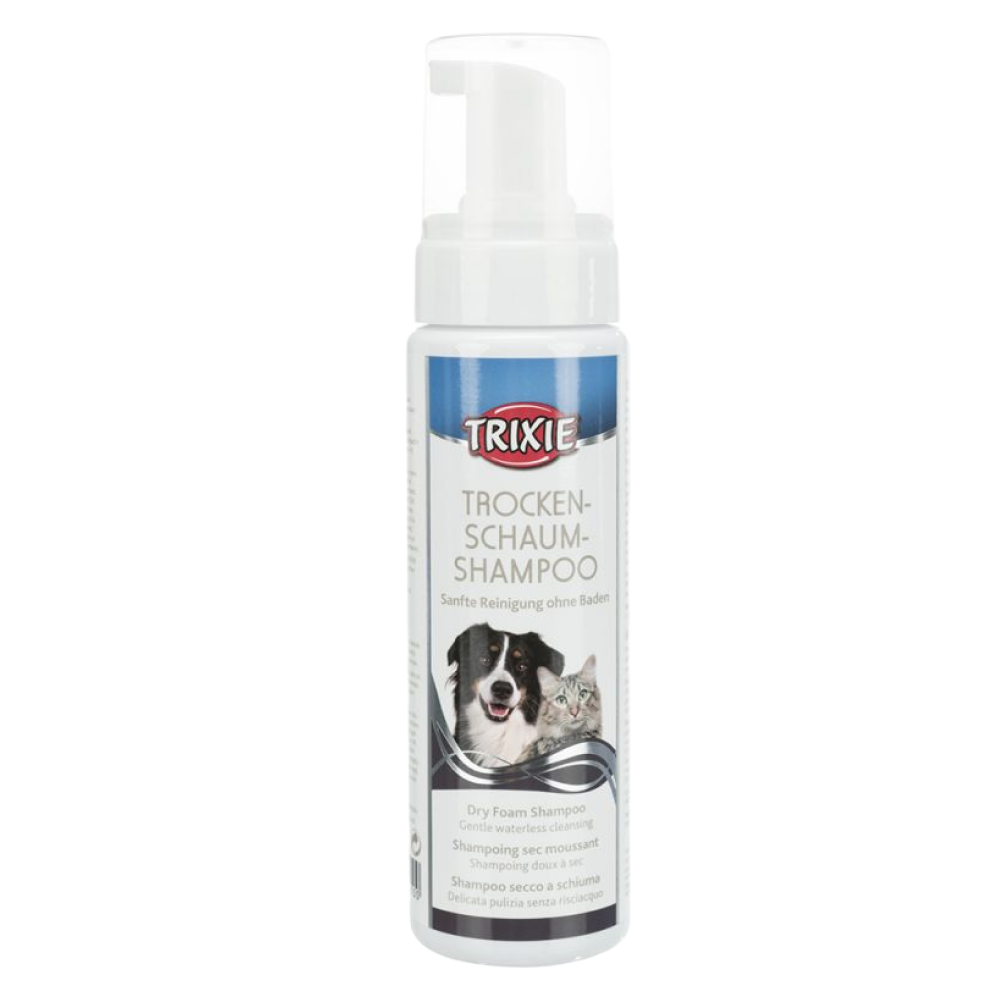
In India, the love for keeping cats as a companion animal has been increasing day by day. An average cat lives between 12 and 14 years, making them an excellent pet for many Indian homes. These days a surging number of people choose cats over dogs. As a result, there is more awareness among the citizens regarding the different types of cats and their available breeds, ranging from the Persian to the Himalayan.
Here are the top 5 cat breeds that thrive in Indian homes:
1. Bombay Cat
Despite what its name suggests, Bombay cats originated from the United States. This breed which looks similar to a black panther was developed by Nikki Horner from Louisville, Kentucky in 1958.
Also known as Mamba or Mini Panther, they are energetic, loveable, and playful cats. This cat breed mostly likes to be in warm places of the house and desires attention, making them best suited for Indian homes with children.
Furthermore, Bombay cats have shorter coat which requires less grooming and maintenance. They are adaptable and can thrive in small apartments or big houses.
2. Persian Cat
One of the most popular and desirable cat species in our country is the Persian cat. Known for their adorable personality and luxurious coats, these cats belong to Iran and come in several colors and patterns, such as two-toned or patchy.
This high-maintenance cat species requires regular grooming due to their thick fur. Persian cats have low activity levels and like to live peacefully in their comfort zone. This large cat breed requires timely check-ups as they are prone to health-related problems.
Persian cats are calm and composed feline breeds with no signs of aggression, making them a perfect fit for families as well as individuals living in India.
3. Rusty Spotted Cat (Indian Billi)
There is a high chance that you have already witnessed this cat breed wandering in your neighborhood. Also known as the Indian Leopard Cat or the Indian Bengal Cat, this feline breed is historically from India and Sri Lanka.
The Rusty Spotted cat has a polished and well-built body along with a dark-coloured tail with unique patches all over their body. This common cat breed of India has short and thick fur and comes in different colours and patterns.
These playful and affectionate cat species have high energy levels and do extremely well in Indian climatic conditions. On top of that, they are not much attention seeking and take good care of themselves.
4. Siamese Cat
Emerged from Thailand, Siamese cats are one of the oldest cat breeds in the world. These blue-eyed cats have long bodies with triangular heads and short and thin coats.
Siamese cats are highly expressive, intelligent, and social, and demand excessive human attention. They are full of energy and flourish in an environment where they get maximum mental and physical stimulation.
Moreover, this medium-sized feline breed thrives in Indian homes, and their short fur helps them to adapt to Indian weather conditions easily.
5. Himalayan Cat
Originating from America, the Himalayan cat breed shares many similarities with Persian and Siamese cat breeds. Himalayan cats are short-legged with extremely dense and long coats, meaning they are high-maintenance cats that need regular grooming. They are calm and gentle creatures but are extroverted and social in nature.
While considering the Himalayan cat breed as a pet, be mindful that these felines are prone to health problems, including breathing difficulties due to their exceptional facial structure.
Conclusion
To sum up, when getting a new cat companion for your home, consider factors including temperament, grooming needs and adaptability of the cat breeds and choose the feline species that suits your home and lifestyle.
Remember to give your feline companion a happy and meaningful life by creating an environment for them to thrive while showing them love and care.
Cat Vaccinations Explained: The Purr-fect Guide to Keeping Your Feline Healthy

If you have just added a cute kitten to your family or adopted a rescued cat and need guidance for their vaccination, this article is for y...
Pawsandpaws | Apr 16, 2025How to Train Your Dog to 'Speak' on Command

Dog parents tend to speak to their dogs to communicate with them. But do you know that you can teach them to answer back? Training your dog...
Pawsandpaws | Apr 02, 2025




















